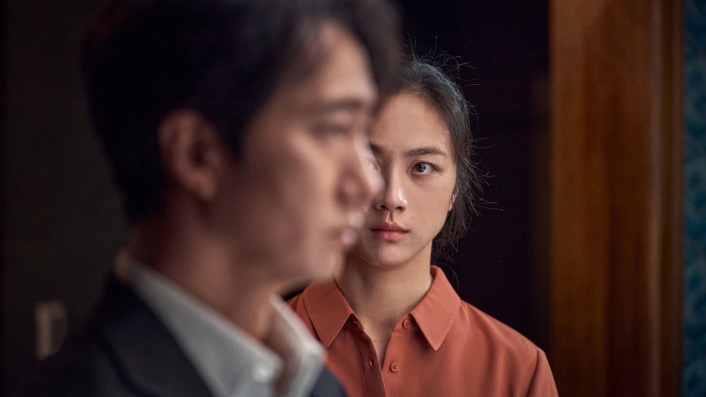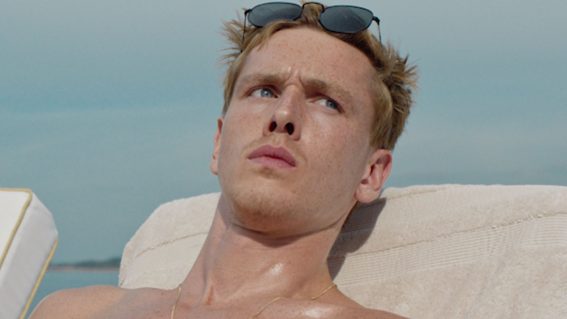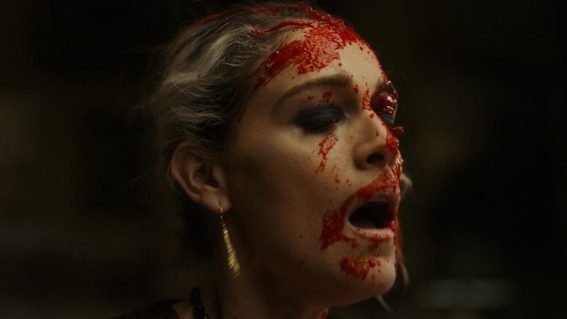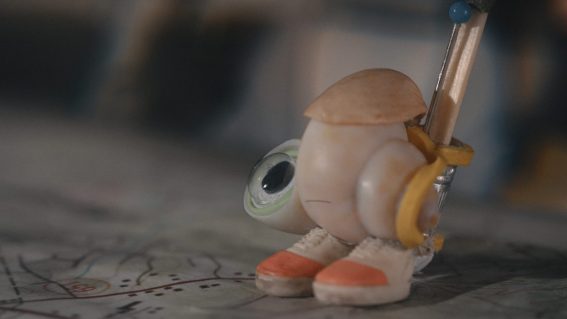NZIFF 2022 mini-reviews (A – E)
Our Whānau Mārama: New Zealand International Film Festival mini-reviews.

Our writers share their thoughts on this year’s Whānau Mārama: New Zealand International Film Festival selections.
This year’s festival features plenty of gems (even if they might not all be available throughout Aotearoa). Our team of keen reviewers has been busy watching, and rendering their verdicts.
All 2022 mini-reviews:
Latest reviews | A – E | F – L | M – R | S – Z
Ali & Ava
Ali & Ava is a shaggy gem of a relationship drama, with lived-in performances from Adel Akhtar and Claire Rushbrook as the titular central protagonists. The film takes a few beats to kick into gear, but ultimately reveals a thoughtful and warm story about second chances, community and moving on. Bonus points for a great soundtrack. RACHEL ASHBY
Animation for Kids
This hour of joyful short films felt like the best way to conclude my festival. Highlights include ‘Luce and the Rock’, a hugely expressive buddy tale about a girl and a 20-tonne boulder child, and ‘Battery Daddy’, a felt stop-motion story that’s coming for Marcel’s shoes as the cutest damn thing in the fest. While these films are for anyone, it was especially heartwarming to see so many kids in the theatre take to these visually inventive pieces of cinema far from what they’d usually see in their day-to-day screentime. LIAM MAGUREN
Animation NOW!
Downsized to a single screening, this year’s selection of “out there” animation felt both tight and varied. Highlights included ‘Hot Spots Wood-Book Study I’, a wild stop-motion piece featuring a book made up of photo frames containing abstract zoetropes, and ‘A Story for 2 Trumpets’, a hallucinogenic and often hilarious trip micro-dosed with a tangible coming-of-age story. My personal fave was ‘In his Mercy’, which used impeccably detailed black-and-white line work to a staggering and nightmarish degree suited to its death row setting. LIAM MAGUREN
The Blue Caftan
Stunning and slow, this little heartbreaker doesn’t rush the details, with lingering close ups of impeccable stitching, divine fabrics, and longing eyes. Fascinating for its showcase of daily life in Salé, Morocco, this small story overflows with big and unpredictable feeling. MATTHEW CRAWLEY
Filmmaker Maryam Touzani delivers an exquisite display of a rarely explored shade of love and marriage. Saleh Bakri is magnetic on screen—such tenderness in his eyes, such Freddie Mercury in this moustache—aided by another knockout performance by Lubna Azabal (Adam, Touzani’s 2019 NZIFF flick) whose character is just the coolest in a grumpy-aunt-with-a-heart-of-gold sort of way. LIAM MAGUREN
Both Sides of the Blade
When Sara (Juliette Binoche) recognises her ex-lover François (Grégoire Colin) in the street, she is struck by the weight of her decision to leave him for his best friend Jean (Vincent Lindon) ten years earlier. What follows is a turbulent unravelling of love’s calm, considering the depths of desire and devotion and the cost of chronic ambivalence. While this moody, pandemic-era portrait is by no means one of Denis’ best, her chemistry with her actors—each of whom she has worked with before—makes for an intimate, compelling watch nonetheless. AMANDA JANE ROBINSON
The only film of the festival that has so far caused me to break my strictest of “no whispering” rules; I just couldn’t resist remarking to my gal that “this is the Frenchest film ever”. In which Juliette Binoche spends two hours trying to decide between “pointy Simon Bridges” and “The Human Cigarette Butt”. Oh la la. MATTHEW CRAWLEY
Boy from Heaven
A rock-solid political espionage thriller made all the more memorable by its setting—the world’s most respected Islamic University. Tarik Saleh’s award-winning screenplay slowly and expertly turns the heat up on its titular boy by putting him in the centre of competing agendas between religion and government—both sides full of assholes. You desperately hope the lad comes out clean (or, at least, alive) so he can study the Quran in peace, but the film makes no assurances, making it tense all the way to the end. LIAM MAGUREN
Clean
The life of the deliciously quotable Sandra Pankhurst, founder of Victoria’s ‘Specialized Trauma Cleaning Services’, could fill a book—and has done: Sarah Krasnostein’s bestselling ‘The Trauma Cleaner’. Lachlan McLeod’s documentary Clean also follows Pankhurst’s story, but opens the lens a little wider to include the personal stories of Pankhurst’s colleagues and clients. It takes a mighty amount of personal protective equipment, industrial solvents, crash courses in microbiology, and (perhaps most of all) empathy to clean the sites of homicides, of hoarding, or simply to help create order in the lives of those who, for whatever reason, are unable to create that order themselves. NB: You will need: tissues. You will receive: a full heart. SARAH THOMSON
Close
I had a close pal in primary school, back in the day they made kids hold hands and form lines during trips. They called it The Buddy System. He was my buddy, so one lunchtime, I held his hand instinctively. He yanked it back and yelled “Are you gay or something!?” That was it. End of friendship. 25 years later, the first third of this film ripped that memory out and showed it to me again. I felt battered. It then took a rudimentary turn which, unfortunately, steered far away from what made this story compelling to me. LIAM MAGUREN
Corsage
Once draped and pinned into fabric in Paul Thomas Anderson’s Phantom Thread, here the incredible Vicky Krieps is violently laced into the corset (or ‘corsage’) of writer/director Marie Kreutzer’s revisionist portrayal of the famously eccentric Empress Elisabeth of Austria. A lavish production, Corsage thrums with its core performance—Krieps’ magnetic Elisabeth prompting rumination upon loss, responsibility, nihilism, aging, and the particularly gendered tension of ‘staying in one’s lane’. Beautiful. SARAH THOMSON
Crimes of the Future
One of film’s best-known organic body horror proponents, David Cronenberg returns here to ideas and characters they once explored over fifty years ago in a film of the very same name. Why? “Money”, Cronenberg jested at Cannes—though, sadly, this film could seem to have done with a little more of it: marred by yikes-inducing day-for-night sequences; ropey casting choices; and seemingly far less attention to detail during attempts at big biomorphic affect. That said, if you can overlook the aforementioned crimes, there are still some Very Big Ideas at play here and an Atlas-level amount of heavy-lifting from a somehow still understated Viggo Mortensen. SARAH THOMSON
With its unnatural dialogue, odd characters, and tangled noir plotlines, Crimes of the Future feels closer to a particularly deranged 70s sci-fi paperback than to Cronenberg’s tightly focused 80s body horror classics. While this is certainly going to alienate a lot of viewers, for fans of the indulgently bizarre and pointedly artificial (think The Killing of a Sacred Deer meets Titane) then this could just be the most exciting movie you see all year. AMELIA BERRY
Based on their past collaborations A History of Violence and Eastern Promises, I had high hopes going in to see director David Cronenberg’s latest vehicle for actor Viggo Mortensen, but oh boy was I disappointed. Lacklustre, dull, plodding and swinging from pretentious to poorly executed, this dystopian allegory peeks into a near future where Mortensen plays a performance artist specialising in live surgical removal of organs grown inside his own body. Léa Seydoux and Kristen Stewart show up, philosophical meanderings are made, and body horror is presented coldly. An oddly paced and uninvolving effort that felt like an idea that needed more time to gestate into something worth cutting open Viggo’s chest for. ADAM FRESCO
Aside from the all-you-really-need information that there’s a new Cronenberg flick in town, the chief selling point of Crimes of the Future has been how many people have walked out of its screenings. The marketing team would have you believe it’s on account of the extreme body horror, but some credit should also go to the stunted acting of the supporting actors, patchy plot ‘n’ pace, and good old fashioned pretentiousness—not a word I throw at a film lightly. More bore than gore. MATTHEW CRAWLEY
Decision to Leave
At this point Park Chan-wook’s control of his images is borderline supernatural, storming through another Hitchcockian thriller in a hail of match cuts, masterful wide shots, digital zooms and segues and on and on. At one point I marvelled at how much a wallpaper pattern spoke to the director’s personality, and by extent his characters. They too are meticulous and attentive, whether applying chapstick or connecting murder cases years apart. A neo-noir blast. TONY STAMP
Park Chan-wook’s take on the ol’ dope-with-a-badge-simping-over-a-suspect trope is a coolly sensual, funnier-than-expected, if emotionally muted exercise in doomed neo-noir romanticism. May need another round to untangle all the plotty threads, particularly during the somewhat exasperating final stretch, but Tang Wei is deeply entrancing, and the whole thing is constructed with such fluid, scintillating formal mastery that you’ll be seduced even if not altogether satisfied. AARON YAP
Dual
There are few cinematic tropes I love as much as that of being haunted by a double. Dual, in which a woman must spend a year training to fight her own clone to the death, is a darkly comedic (and just generally dark) take on the topic—examining a sense of alienation from the world and from ourselves that is bleakly familiar, even to those of us without clones. Strongly reminiscent of the stylisation of Yorgos Lanthimos, director Riley Stearns is nevertheless able to imbue Dual with a different brand of pathos and a world entirely his own. While the ending runs out of steam—our audience sat unmoving in unmistakably anticipatory silence as the credits rolled, as though a Marvel-esque post-credits sequence might appear to provide a slightly more satisfying punch—Dual is a surprisingly entertaining rumination on estrangement that I enjoyed a lot. KATIE PARKER
Karen Gillan plays dual roles, as both a dying woman and her replacement clone, in this existential thought-fest that, despite lofty ambitions, sadly drags. Not funny enough to be a dark satire, nor thrilling enough to be a science fiction actioner, this meditation on morality in the age of cloning at least tries to grapple with big questions. But ambition alone does not an entertaining movie make and, despite not one but two solid performances from Gillan, this one left me wanting more. ADAM FRESCO
Emily the Criminal
Hello Aubrey Plaza, Serious Actor. This isn’t the Parks & Rec vet’s first dramatic role but it’s her most substantial, a discreetly layered turn powering John Patton Ford’s grungy crime caper. Refreshingly low-stakes and snappy, there’s the odd crackle of generational politics here, but it’s mostly a vehicle for the increasingly frayed performance at its centre. TONY STAMP
Aubrey Plaza thriller sets out with comparatively everyday stakes, but is no less tense for it. Anchored by an excellent dramatic performance by a restless, impulsive Plaza, the film works off a strong foundation of option-limiting past mistakes, mounting student loan debt and the opportunities provided by entry-level fraud. Plus, there’s room for an entertaining detour when Plaza faces off against a cameoing Gina Gershon in an inter-generational feminist back-and-forth (“when I was your age…”) for our times. STEVE NEWALL
All 2022 mini-reviews:
Latest reviews | A – E | F – L | M – R | S – Z




















